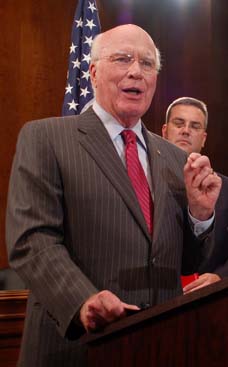
We found and are finding in the barrios more creative opportunities, more opportunities to contribute than we had imagined. In the schools, the vaguely-defined role of teachers' aides is being defined by each Volunteer in terms of his abilities and the need of the school in which he is working. In some schools English teaching is adequate, but in some spoken English is unintelligible, the local dialect too strongly influencing it. English is important for two reasons. First it is the only language spoken throughout the Philippines. There are between 80 and 90 different dialects spoken here and a lack of English severely restricts the geographical area in which a Filipino may comfortably travel or work. Second, the language used in high schools and colleges is English. In science we were already aware of the need and the limitation we had feared in the teacher's aide concept is being resolved. By working with the students on individual projects and outside of class, by working with the teachers in designing experiments which utilize materials available in the communities, the Volunteers have found a creative and useful role in the teaching of science in the schools.
Leonard Gieseke writes: Peace Corps Volunteers work as Education Aides in the Philippines - From The Volunteer Newsletter March 1962
WHAT IS AN EDUCATIONAL AIDE?
by Leonard Gieseke, Phdippines
Upon arriving in the Philippines, we were asked again and again, "What is the Peace Corps going to do here?" We had a ready answer: "We are here as teacher's aides in English and science." But what was a teacher's aide?
We knew what it was not. There is an oversupply of teachers in the Philippines-an oversupply in terms of more teachers than there is money to hire. Because of this, it was made clear we were not to be teachers regularly handling classes. There was no intention that we should take jobs-though potential jobs only- from Filipinos. Only half-jokingly it was suggested that we would do such things as erase the blackboards.
In the teaching of English the role was defined. We were to be models of spoken English, to be called upon to recite before the class for imitation by the students. Not an exceptionally challenging role-rather like self-propelling tape recorders-but a role which we could at least understand and explain. We did not feel very challenged, nor were we particularly convinced that it was necessary that Filipinos speak American English. In the area of Los Banos where we were trained in the Philippines there is spoken Filipino English. It is at least as intelligible to most Americans as Brooklyn English is to a Georgian.
In science our role was less defined but the contributions we could make were more obvious. Science tends to be neglected in the schools because the teachers lack training in it. The Division of Science of the Bureau of Public Schools is aware of this problem but the solution is slow. There are not enough scientists in the Philippines to provide adequate training.
But as we left for the barrios, we were doubtful that we would be able to contribute very much to the Philippines. We faced, we thought, a limited role.
All of us were wrong.
We found and are finding in the barrios more creative opportunities, more opportunities to contribute than we had imagined. In the schools, the vaguely-defined role of teachers' aides is being defined by each Volunteer in terms of his abilities and the need of the school in which he is working. In some schools English teaching is adequate, but in some spoken English is unintelligible, the local dialect too strongly influencing it. English is important for two reasons. First it is the only language spoken throughout the Philippines. There are between 80 and 90 different dialects spoken here and a lack of English severely restricts the geographical area in which a Filipino may comfortably travel or work. Second, the language used in high schools and colleges is English. In science we were already aware of the need and the limitation we had feared in the teacher's aide concept is being resolved. By working with the students on individual projects and outside of class, by working with the teachers in designing experiments which utilize materials available in the communities, the Volunteers have found a creative and useful role in the teaching of science in the schools.
In addition, in the schools and the communities in which they live, they are finding myriad opportunities to be of use. Some are organizing libraries and reading centers. Others are designing and laying out recreational facilities. Some are helping in the campaign to arrest the spread of cholera. A few are helping in agricultural experimentation. One group has started adult education classes at night.
To the question, "What are the Peace Corps Volunteers going to do here?" we can say "We are here to serve as teachers' aides in the elementary schools and to be participating members of the communities in which we live," The last half of the answer deserves as much emphasis as the first.













